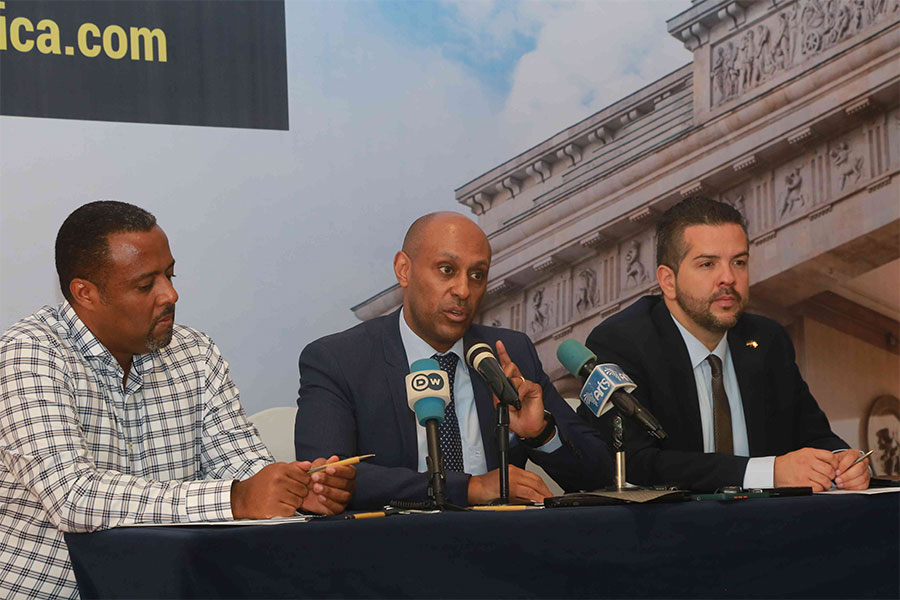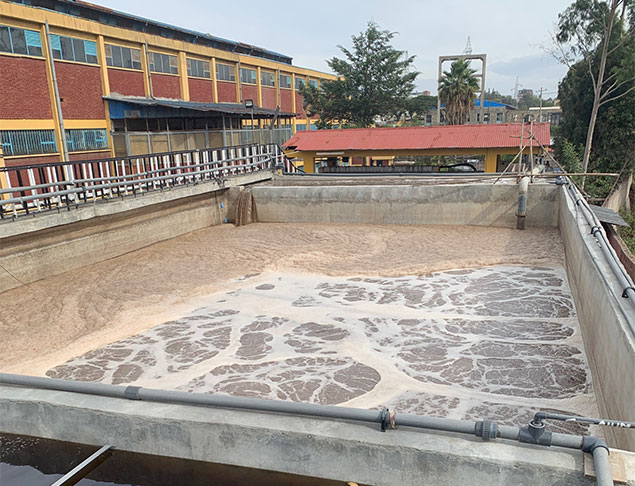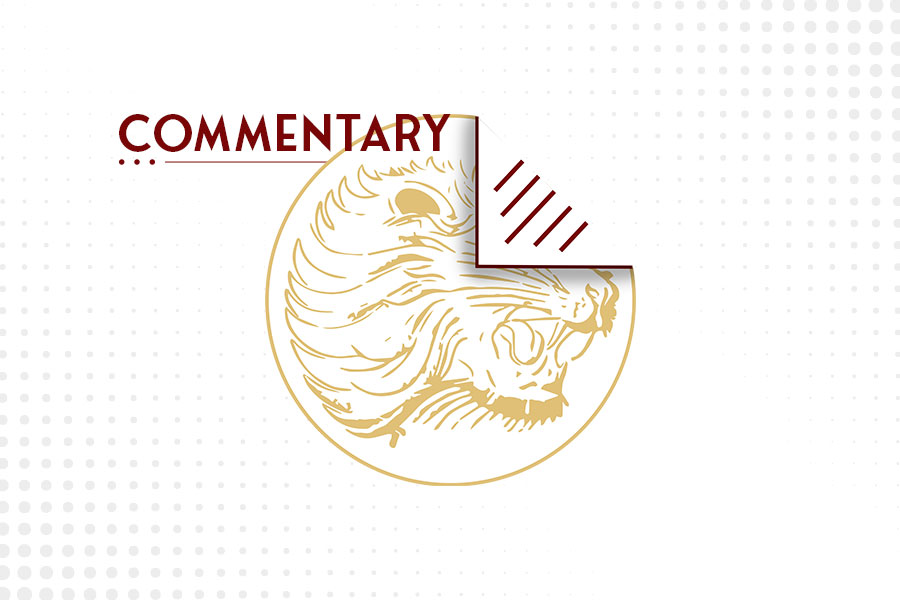
Hanna Desta, in her mid-30s, lives at Semen Mazegaja, the capital. Born and raised in Addis, she has three children. For Hanna, water shortages are a common thing she experiences all the time.
Hanna, a housewife, gets water once a week and like many in the capital, she faces severe water shortages. She and her family of four use water she stores in barrels for the whole week.
The family uses stored water for cooking and cleaning, but she buys bottled water for drinking.
“We get water once a week on Wednesdays,” said Hanna. “If we run out of stored water before the water comes again, we go to relatives who live in other parts of the city to get water.”
“If the water doesn’t come during the daytime, we are forced to wake up and check in the middle of the night," she said. "Once the water comes, it will stay for half a day."
It is not only Semen Mazegaja that faces the shortage of water, but many areas in the capital are facing the same problem.
Ehete Abebe, a housewife in her mid-40s who lives at Gofa Mebrat Haile is another resident who is suffering from a shortage of water.
A mother of five children, she does not know the exact time when water comes, and she always has to check the pump to see if there is water even at midnight.
Ehete, who pays an average of 40 Br a month for the water bill, stores water in five 20ltr jerry cans when it comes and uses it for washing clothes and cooking for a week.
“Even though I don’t know the exact date, we get water one day in a week,” Ehete said.
Previously she used to buy 20ltr of water for 15 to 20 Br from water vendors, but because she suspects the cleanness of the water and the rumors she hears about cholera, Ehete stopped buying water from vendors.
The shortage of water in the capital city has become a common sight. Here empty jerrycans are in line to get water.
"For drinking, I used to buy bottled water," she adds.
The water shortage is not only affecting the residents but also those in business.
Genet Teshome, in her late 20s, has worked in a barbershop for the last year and a half.
Genet and her five colleagues work at Afro Barbershop, which is located near the National Theater. On average the shop serves 25 customers a day.
Most of her customers wash their hair after they get a haircut. If there is no water, she survives with stored water. When the water comes, she stores it in a large barrel.
Water supply interruption is a common event at the barbershop.
“Water is out for four days of the week,” Genet said. “I buy four 20lt jerry cans of water twice a week, each costing me 20 Br,” she adds.
Established in 1971, the Addis Abeba Water & Sewerage Authority has 560,000 customers in this city of four million residents, according to the Central Statistical Agency. The capital is growing at a rate of 3.8pc annually.
For the capital city, which hosts 30pc of the country’s urban population, the Authority supplies 580,000 cubic metres of water a day, while the total demand reaches 1.1 million cubic metres.
“The continuous increase of the population of the city and large institutions that have high water consumption are the major factors for the shortage of water, and we are working to tackle the problem,” said Serkalm Getachew, the Authority’s communications affairs team leader.
The shortage of forex is also a reason for not completing the ongoing water projects, another factor that complicates the lack of adequate water supply, according to her.
Addis Abeba, a 133-year-old city, built its first water plant at the foothills of Entoto in 1938, followed by Gefersa Dam six years later, which still covers most of the city’s water supply.
Located northwest of the city, Gefersa Dam, which was completed in 1940, underwent thorough renovation in 2008 and increased its water holding capacity to 9.5 million cubic metres and provides 30,000 cubic metres a day.
"Water rationing is not a new thing. If there is a shortage of water, there will be rationing," said Serkalm. "But to address the shortage of water, we revised the schedule."
The Authority revised the water rationing schedule in mid-September, and it will last up to six months until the new water projects start providing water.
According to the newly revised schedule, depending on water production and distribution, the supply will be increased or decreased.
Based on the energy it takes to pump the water and consumption rates, out of the total 116 weredasin the capital city, 20 of them get water once a week, while 12 weredasget it seven days a week. The rest get water between two to five days a week.
Throughout the city, which has high water scarcity, the Authority has installed seven barrels that can hold 25,000lt to 50,000lt of water each to address the issue.
The Authority is building water projects in the city to expand the water infrastructure. Currently, the city is getting its water from three dams and around 184 water wells.
A two billion Birr project, the North-South Ayata Fenta Water Well is set to be completed this year with a capacity of producing 68,000 cubic metres a day.
The water project has 21 deep wells and is expected to benefit 650,000 people, while phase two construction of the Legedadi Water Well Supply Project will generate 86,000 cubic litres of water a day. There is also the Gerbi Water Project, which will generate 73,000 cubic litres a day.
Legedadi Dam & Treatment Plant, established in 1970, has the capacity of holding 47 million cubic metres of water and underwent expansion work in 1985 and 2015. Legedadi Dam & Treatment Plant is located on the Aqaqi River east of Addis Abeba and has a capacity of producing 174,000 cubic metres of water a day.
Apart from this, last year the Authority began drilling 12 wells in the city, 10 of which are completed. The wells will have the capacity to provide 6,480 cubic metres of water a day and are expected to benefit 60,000 residents.
The Dire dam is an earth-fill dam which was completed in 1995 and has a capacity of holding over 19 million cubic meters of water.
In the city, over 100 deep and shallow wells have been dug since 1995 and are operational. Including these wells, 413,000 cubic metres, which amounts to 67.9pc of the city’s total daily water production, is obtained from groundwater sources.
The water coverage at a national level was 71pc in the last fiscal year.
In the second edition of the Growth & Transformation Plan (GTP II), the government plans to increase access to water in urban and rural areas to 75pc and 85pc, respectively.
Access is defined as being able to find 25lt of water each day within a one-kilometre distance in rural areas and at least 40lt of water within a 250m distance in urban areas.
Jemal Mohammed, CEO of Blue Matrix Consultancy, has worked in water supply, sanitation and environmental engineering for more than three decades. He believes that even if the ongoing project is completed, it will not bring a significant change. The Authority should make a collaborated effort to solve the scarcity of water, he said.
The Authority should build a strategic water supply project that will serve for the coming 40 years. Unless that happens, solving the water problem is not even imaginable, said Jemal.
Jemal also said that the geographic topography of the city cannot be the cause for water shortage, and that considering this, the Authority should have proper planning.
"Most of the city’s water lines are old. Because of this, lots of water is misdirected, so they have to replace the old lines," he said. "The Authority also should work on awareness creation, so citizens don't use clean water for gardening and construction."
PUBLISHED ON
Oct 26,2019 [ VOL
20 , NO
1017]

Radar | Mar 04,2023

Fortune News | Jun 20,2020

Radar | Nov 21,2018

Fortune News | Apr 26,2019

Fortune News | Oct 16,2021

Commentaries | Oct 16,2024

Commentaries | Apr 15,2023

Commentaries | Feb 01,2020

Viewpoints | Jun 18,2022

Commentaries | Jan 07,2023

Dec 22 , 2024 . By TIZITA SHEWAFERAW
Charged with transforming colossal state-owned enterprises into modern and competitiv...

Aug 18 , 2024 . By AKSAH ITALO
Although predictable Yonas Zerihun's job in the ride-hailing service is not immune to...

Jul 28 , 2024 . By TIZITA SHEWAFERAW
Unhabitual, perhaps too many, Samuel Gebreyohannes, 38, used to occasionally enjoy a couple of beers at breakfast. However, he recently swit...

Jul 13 , 2024 . By AKSAH ITALO
Investors who rely on tractors, trucks, and field vehicles for commuting, transporting commodities, and f...

Oct 11 , 2025
Ladislas Farago, a roving Associated Press (AP) correspondent, arrived in Ethiopia in...

Oct 4 , 2025
Eyob Tekalegn (PhD) had been in the Governor's chair for only weeks when, on Septembe...

Sep 27 , 2025
Four years into an experiment with “shock therapy” in education, the national moo...

Sep 20 , 2025
Getachew Reda's return to the national stage was always going to stir attention. Once...